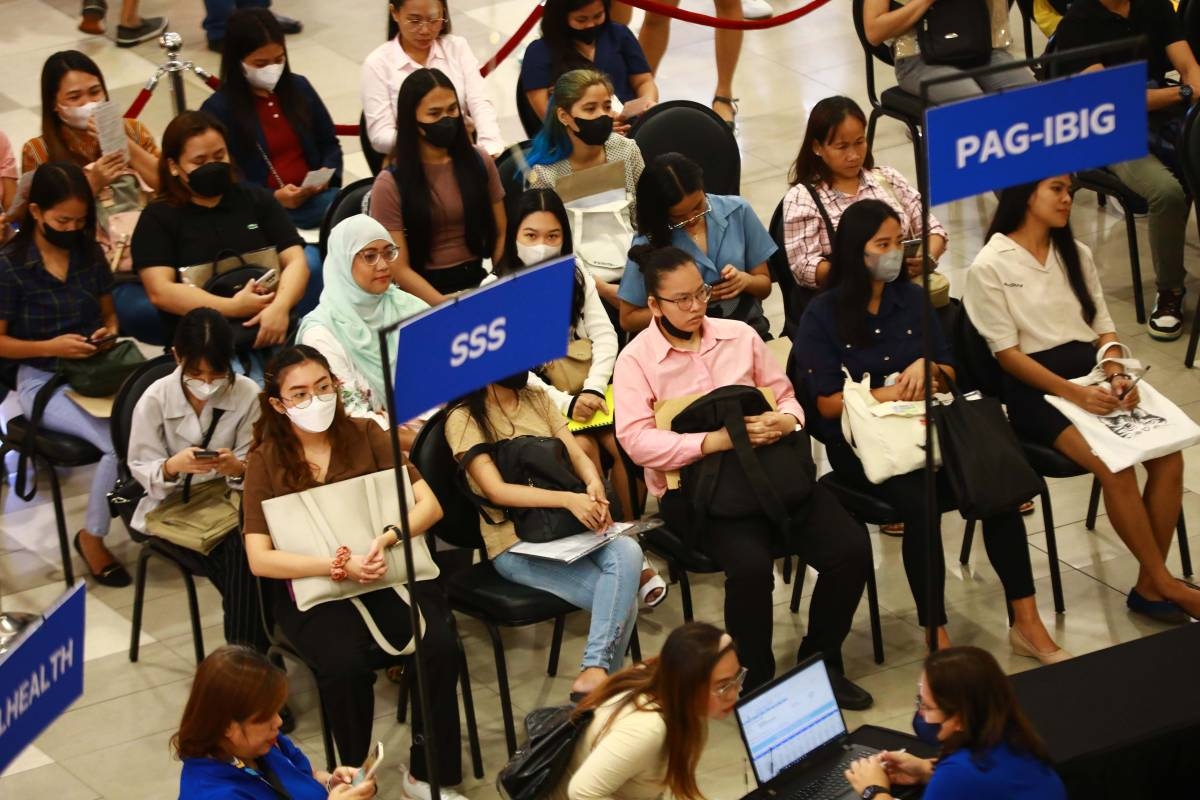Enforcing Compliance: SSS Pursues Delinquent Employers in the Philippines
In Manila, Philippines, the Social Security System (SSS) has taken action against more than 1,200 employers across the country who have failed to remit the contributions of approximately 19,000 workers, amounting to over P335 million. The SSS President and Chief Executive Officer, Rolando Ledesma Macasaet, highlighted the importance of workers being vigilant and regularly checking the status of their contribution records. The SSS has urged employees to utilize the my.sss portal, accessible through smartphones, to easily monitor the accuracy of their contributions. If discrepancies are found, workers are advised to report the issue immediately to their local SSS branch for investigation.
The Consequences of Non-Remittance
Macasaet emphasized the impact non-remittance of contributions can have on employees’ entitlement to SSS benefits and loan programs. He provided an example to illustrate this point, stating that if an SSS member were to be hospitalized for an extended period due to illness and their employer had not remitted their contributions, they would be disqualified from receiving sickness benefits. An up-to-date contribution record is crucial as it serves as the basis for qualifying for various SSS benefits.
Enforcing Compliance: SSS Takes Legal Action
To address the issue of delinquent employers, Macasaet issued a stern warning, making it clear that the SSS will not hesitate to file charges against those who fail to remit contributions. He emphasized that the non-remittance of SSS premiums is considered a criminal offense, violating Republic Act 11199. Under this law, employers who neglect to register their employees or fail to deduct and remit their contributions to the SSS can face penalties ranging from a fine of P5,000 to P20,000, as well as imprisonment ranging from six years and one day to 12 years.
It is crucial for employers to understand their legal obligations and fulfill their responsibilities in remitting SSS contributions. Failure to do so not only deprives employees of their entitled benefits but also carries significant legal consequences. By prioritizing the remittance of contributions, employers can ensure the financial security and well-being of their workforce.
Protecting Workers’ Rights: Importance of Compliance
The SSS’s pursuit of delinquent employers underscores the importance of compliance in safeguarding the rights of workers. By remitting contributions promptly, employers contribute to the stability of the SSS system and ensure that employees can access the benefits they deserve. These benefits encompass a wide range of programs, including sickness benefits, maternity benefits, disability benefits, retirement pensions, and even funeral grants.
Workers rely on these benefits as a safety net during challenging times, such as medical emergencies or retirement. Therefore, it is essential for employers to prioritize the remittance of contributions, as it directly impacts the financial security of their employees and their families.
Empowering Workers: Utilizing the My.SSS Portal
To empower workers and enable them to monitor the accuracy of their contribution records, the SSS has introduced the my.sss portal. Accessible through smartphones, this portal provides a convenient means for workers to stay updated on their contributions. By regularly checking their records, employees can identify any discrepancies and promptly report them to the SSS for investigation.
The introduction of the my.sss portal reflects the SSS’s commitment to enhancing transparency and accessibility for its members. This digital platform not only simplifies the process of monitoring contributions but also empowers workers to take an active role in ensuring the accuracy of their records. By utilizing this tool, employees can play a vital part in upholding compliance and holding delinquent employers accountable.
Ensuring a Fair and Just System
The SSS’s efforts to pursue delinquent employers and enforce compliance are crucial in maintaining a fair and just social security system. By taking legal action against those who neglect their responsibilities, the SSS sends a clear message that non-remittance of contributions will not be tolerated. This serves as a deterrent to employers who may consider evading their obligations.
Furthermore, the penalties outlined by Republic Act 11199 act as a safeguard against employers who seek to exploit their workers by withholding their contributions. By imposing fines and potential imprisonment, the law ensures that employers are held accountable for their actions and that workers’ rights are protected.
Conclusion
The SSS’s pursuit of delinquent employers in the Philippines highlights the importance of compliance in safeguarding the rights and benefits of workers. Through the my.sss portal, employees can actively monitor their contribution records and report any discrepancies promptly. Employers must understand their legal obligations and remit contributions in a timely manner to ensure the financial security of their workforce. The SSS’s commitment to enforcing compliance and taking legal action against non-remittance serves as a deterrent and upholds the integrity of the social security system. By prioritizing compliance, employers contribute to a fair and just system that protects the rights and well-being of workers across the country.







